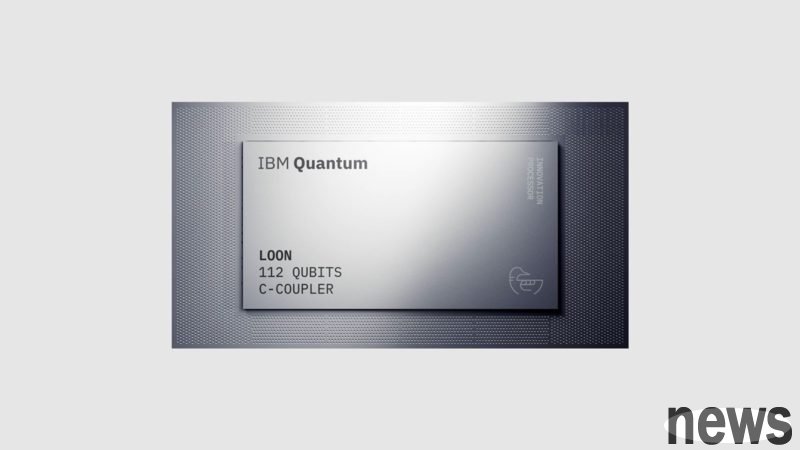
IBM announced on the 12th that the company has manufactured an experimental quantum computing chip called Loon, demonstrating an important milestone in creating a practical quantum computer by 2029.
Reuters reported that quantum computers may one day solve problems that would take traditional computers thousands of years to solve. However, due to the uncertainty caused by the nature of quantum mechanics, such chips are prone to errors.
How to correct these errors is a key focus of technology giants including Alphabet's Google, Amazon and IBM in pursuing quantum computers. In 2021, IBM proposed a new error correction method: adapting the algorithm used to improve mobile phone signals to quantum computing, and combining quantum chips with traditional computing chips to execute it.
Mark Horvath, vice president and analyst at research firm Gartner, said in an interview with Reuters that the disadvantage of IBM's idea is that the manufacturing of quantum chips will be more difficult, because in addition to the basic components of "qubits", new quantum connections between qubits must also be added.
Horvath said: "This is really smart. Now that they have actually put this design into the chip, it is really exciting."
Jay Gambetta, director of IBM Research and an IBM Fellow, said that the key to achieving this breakthrough lies in the Albany NanoTech Complex in New York, which has the world's most advanced semiconductor manufacturing equipment.
Loon is still in its early stages, and IBM has not said when outsiders will be able to test it. However, IBM also announced on the 12th that another chip called Nighthawk will be available to the public at the end of this year.
IBM expects Nighthawk to surpass traditional computers in certain tasks by the end of next year, and is teaming up with a number of start-ups and researchers to share its source code so that the outside world can jointly test the results.
Gambetta told Reuters: "We are confident that there will be many cases of quantum advantage. But we want to move from headlines and academic papers to reality and create an environment where anyone can submit code and have it tested by the community, so that the best solutions can ultimately stand out."
